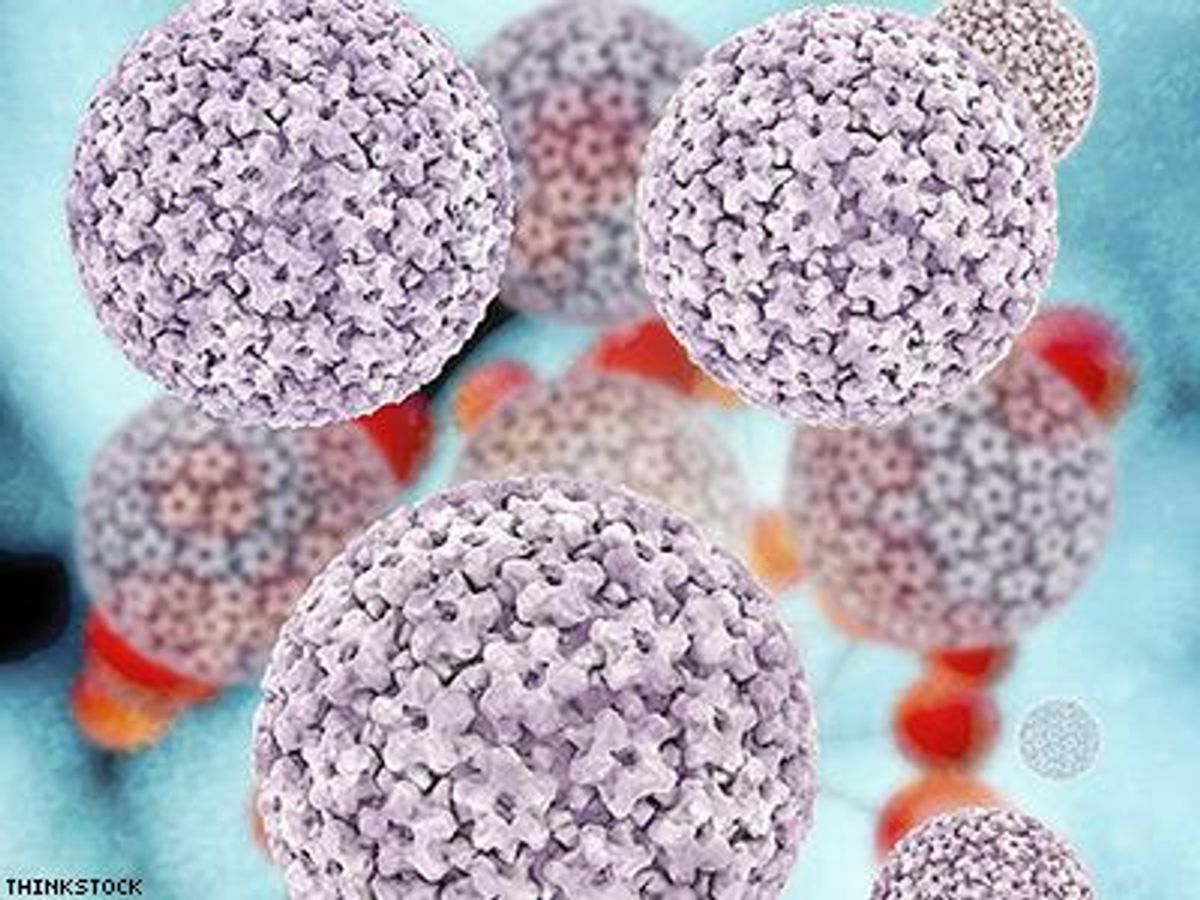A few weeks ago, one of my patients saw me for a sore throat. The pain was isolated to the left side of the throat and the patient is a former smoker, so I was immediately concerned. I saw a rather large but otherwise normal-appearing tonsil on the left side and sent the patient to an ear, nose, and throat colleague to assist me. My patient underwent a biopsy and the result, tonsillar cancer, did not surprise me. However, learning that the cancer was due to human papillomavirus did.
Human papillomavirus, or HPV, is the most common sexually transmitted infection in the U,S. Current estimates suggest that up to 79 percent of sexually active men and women will become infected with HPV at some point during their lives. HPV transmission may occur during vaginal, rectal, and oral intercourse even without symptoms or a visible growth. There currently is no approved test to screen whether you've been exposed to HPV
The older you are and the more sexual partners you have, the greater your risk for HPV infection. HIV-infected men and women are also more likely to become infected with HPV and more likely to have persistent infections. Most often, your body will clear HPV infection on its own. Persistent HPV infection, though, may lead to cancer including cervical, anorectal, and increasingly, oral cancer. A study published in the Journal of Clinical Oncology estimated that the annual incidence of HPV-associated oral cancers will surpass that of of HPV-associated cervical cancers by 2020.
Condoms can lower your risk both for getting and transmitting HPV. However, very few gay and bi use condoms for oral sex. Unlike with HIV, it is very easy to get HPV from oral sex. Men who have sex with men are at higher risk for developing HPV-associated oral cancers, and among this population, African-American men have an even slightly higher risk. While Pap smears can detect the presence of HPV and early precancerous cells, making it easier to treat cervical and rectal cancers in the earliest stages, there is no similar test to detect HPV-associated oral cancers. HPV tends to cause cancers in the back of the mouth, primarily at the base of the tongue and in the tonsils. Tell your doctor if you have symptoms suspicious for oral cancer (see symptoms below).
There is some good news: You are more likely to survive oral cancer caused by HPV than oral cancer caused by another risk factor, such as smoking. HPV vaccines are approved for use in both men and women up to the age of 26 and are designed to protect against the types of HPV that most commonly lead to cancer. The vaccine, three doses over a period of six months, may be up to 99 percent effective at preventing these types of HPV. Check with your insurance to make sure it will pay for the vaccine, as it may cost you up to $500 out of pocket.
Hopefully in the future, we'll have a better approach to screening and early detection for the presence of oral HPV. Until then, its important to know your risk, modify behaviors that may increase your risk for oral cancer (e.g. stopping smoking), and consider vaccination against HPV.
Oral Cancer Signs and Symptoms:
This list, from the Oral Cancer Foundation, considers both oral cancers from HPV and those from tobacco and alcohol:
An ulcer or sore that does not heal within two to three weeks
Difficult or painful swallowing
Pain when chewing
A persistent sore throat or hoarse voice
A swelling or lump in the mouth
A painless lump felt on the outside of the neck, which has been there for at least two weeks
A numb feeling in the mouth or lips
Constant coughing
An earache on one side (unilateral) that persists for more than a few days















































































